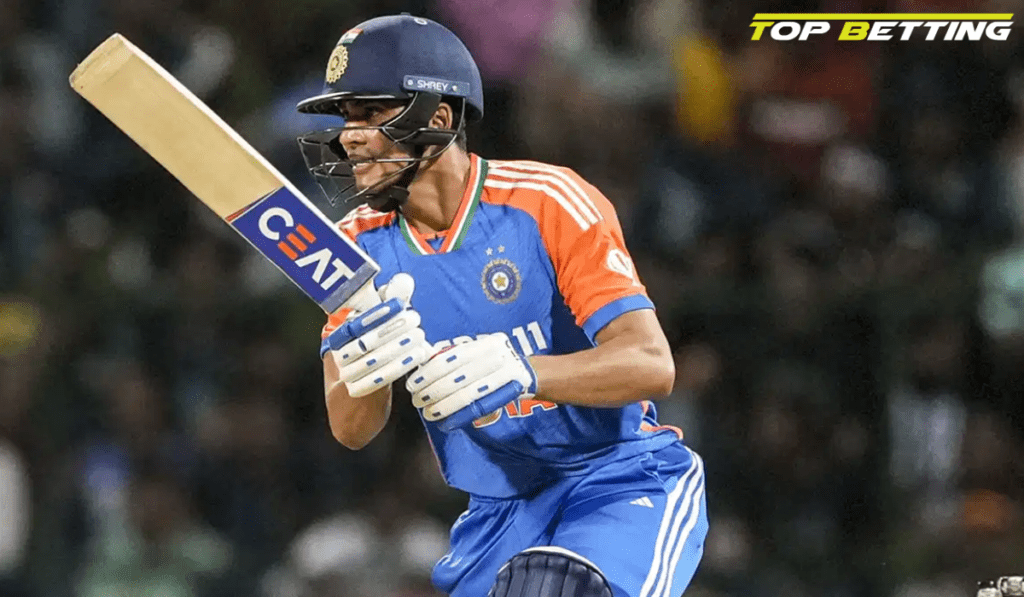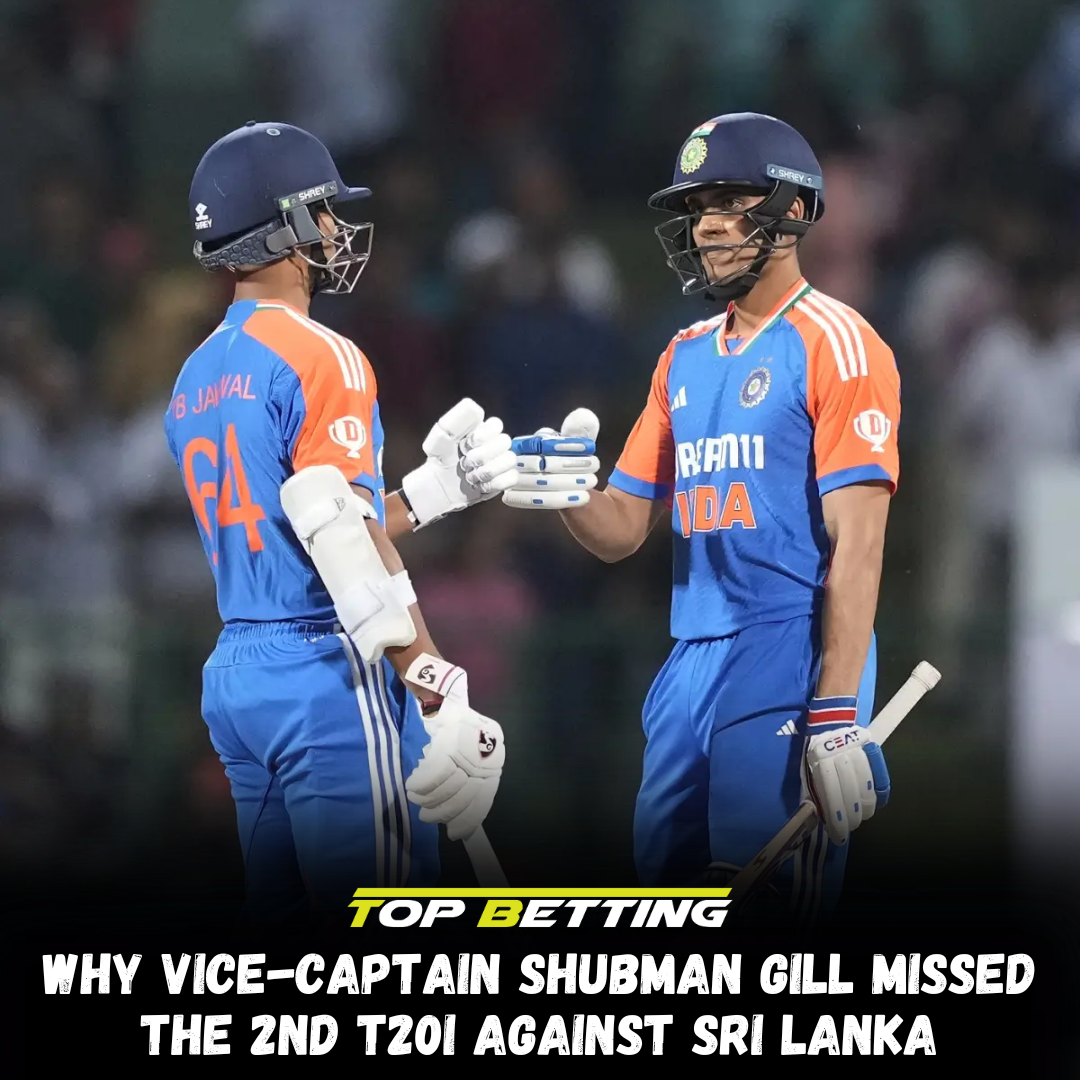
Why Vice Captain Shubman Gill Missed the 2nd T20I Against Sri Lanka
Shubman Gill was notably absent from India’s XI for the second T20I of the series against Sri Lanka on Sunday. This absence came as a surprise to many, especially given Gill’s impressive performance in the first match of the series. During the first T20I, Gill showcased his batting prowess by scoring a quickfire 34 off just 16 deliveries. His aggressive start at the top of the order, combined with stellar performances from Yashasvi Jaiswal and Suryakumar Yadav, significantly contributed to India’s formidable total of 213/7 in their allotted 20 overs.
The first match saw India put on a dominant display with the bat. After being put into bat first, Shubman Gill’s explosive innings set the tone for the Indian innings. His brisk 34, which came at a strike rate exceeding 200, was marked by an array of aggressive strokes that put the Sri Lankan bowlers on the back foot right from the start.
This strong foundation allowed the middle-order batters to capitalize on the start and propel the team to a high score. Yashasvi Jaiswal chipped in with a solid 40, while Suryakumar Yadav top-scored with a magnificent 58. Rishabh Pant also played a crucial innings, scoring 49, which ensured that India posted a challenging total for Sri Lanka to chase.
However, Gill was forced to sit out the second T20I due to a neck spasm, as revealed by Indian captain Suryakumar Yadav. This sudden health issue meant that Gill could not take the field, and wicketkeeper-batter Sanju Samson was called in as his replacement. Despite Samson’s inclusion, it was expected that Rishabh Pant would continue with the wicketkeeping duties for the match in Pallekele.
Gill’s absence was felt keenly, especially considering his recent form and his burgeoning role within the team. He had been part of the reserves during the T20 World Cup until the group stages but had significantly grown in stature since then. His leadership skills were put to the test when he was named the captain of a largely second-string Indian squad for the T20I series against Zimbabwe. Under his captaincy, the team achieved a commendable 4-1 series victory in Zimbabwe. Following this, with Gautam Gambhir’s appointment as the head coach, Gill was named the vice-captain for both ODIs and T20Is.
The ongoing series against Sri Lanka marks the beginning of Gill’s stint as India’s permanent vice-captain in white-ball formats. This role is a testament to the trust and confidence the team management has in his abilities, both as a player and a leader. His performance in the first T20I was a clear indication of his potential to excel in this role.
India entered the second T20I with a 1-0 lead in the three-match series, having secured a comprehensive 43-run victory in the first match. The Indian bowlers played a pivotal role in this win, successfully defending the high total. Despite a strong start from the Sri Lankan batsmen, who were at a commanding 140/1 in 14 overs, the Indian bowlers orchestrated a dramatic collapse. Sri Lanka lost their last nine wickets for just 30 runs, with Riyan Parag delivering a standout performance by picking three wickets in just 8 balls. Axar Patel and Arshdeep Singh also contributed significantly, claiming two wickets each, thereby sealing the victory for India.
The second T20I, therefore, carried significant importance for both teams. For India, it was an opportunity to seal the series, while Sri Lanka aimed to level the score. The absence of Shubman Gill was a considerable blow for India, but it also presented an opportunity for other players to step up and make their mark.
Looking ahead, the T20I series against Sri Lanka is just the beginning of a busy schedule for the Indian cricket team. Following the T20Is, the two teams will compete in a three-match ODI series. This series will see the return of some of India’s senior players, including captain Rohit Sharma and star batter Virat Kohli. Their return marks the first time they will be playing in the ODI format since the World Cup last year, adding further excitement and anticipation to the series.
The upcoming ODIs are expected to be fiercely contested, with both teams looking to fine-tune their preparations ahead of future international commitments. For India, the return of Rohit Sharma and Virat Kohli will undoubtedly bolster the team’s batting lineup, providing much-needed experience and stability. Sharma’s leadership and Kohli’s batting prowess will be crucial as India aims to continue their winning momentum.
In conclusion, while Shubman Gill’s absence from the second T20I due to a neck spasm was a setback, it also highlighted the depth and resilience of the Indian squad. The team’s performance in the first T20I and their ability to adapt to unforeseen challenges are positive signs as they build towards future series and tournaments. The ongoing series against Sri Lanka not only serves as a platform for emerging talents but also as a preparation ground for the experienced players who are set to return to the fold.












